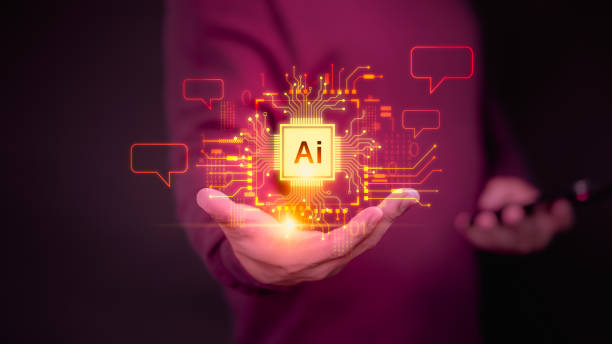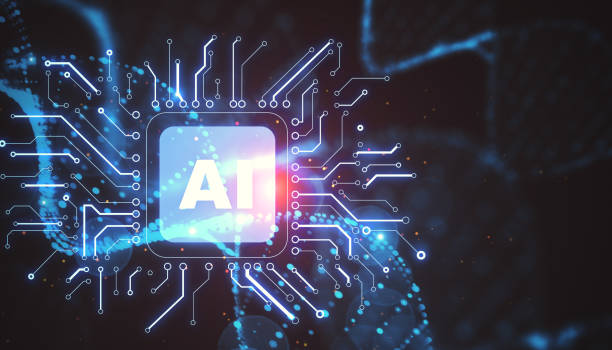What is an AI Assistant? Definitions and Applications

#AI_Assistant (AI Assistant) is a computer program or software system that is designed using #artificial_intelligence algorithms to perform various tasks automatically or with minimal human intervention.
These assistants are capable of processing information, answering questions, providing suggestions, and even performing more complex tasks such as planning and problem-solving.
The applications of AI assistants are very broad and include areas such as #customer_service, #healthcare, #education, and #e_commerce.
By analyzing data and patterns, AI assistants can help users make better decisions and perform tasks faster.
Well-known examples include virtual_assistants such as Siri and Alexa, which interact with users through voice and text and perform tasks such as setting reminders, playing music, and searching for information.
Overall, an AI assistant is a powerful tool that can increase productivity and efficiency in many aspects of life and work.
To better understand how these assistants work, it is important to be familiar with the basic concepts of artificial intelligence and machine learning.
Does your current website convert visitors into customers or drive them away? Solve this problem forever with professional corporate website design by Rasaweb!
✅ Creating a strong brand and credibility
✅ Attracting target customers and increasing sales
⚡ Get a free consultation now!
The Evolution of AI Assistants from Past to Present

The evolution of AI assistants has been a journey full of ups and downs.
In the early decades of #artificial_intelligence, the focus was more on expert systems that could provide specialized knowledge in a specific field.
These systems typically operated based on logical rules and pre-defined knowledge and had limited ability to learn and adapt to new situations.
With the advancement of #machine_learning and #deep_learning, AI assistants have been able to learn from data and improve their performance.
The emergence of artificial neural networks and complex algorithms has enabled Natural Language Processing (NLP), giving AI assistants the ability to interact with human language and understand users’ intentions.
Today, AI assistants can not only answer questions but also manage more complex conversations, automate tasks, and even detect user emotions.
These advances have led to the development of advanced virtual assistants such as IBM Watson and Google Assistant, which have many applications in various industries.
AI assistants are still evolving, and with the development of new technologies, they are expected to play a more prominent role in our daily lives in the future.
Main Components of an AI Assistant
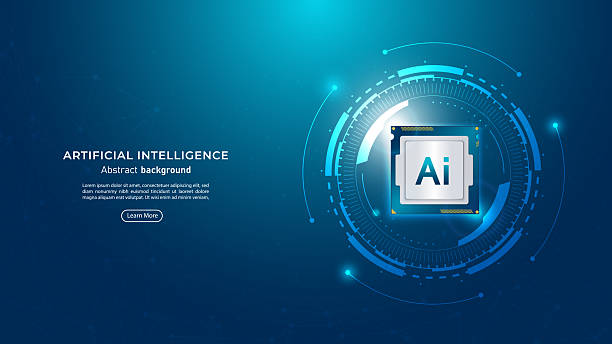
An AI assistant consists of several main components, each of which has a specific task.
These components include:
1.
Natural Language Processing (NLP) This component is responsible for understanding and interpreting human language.
NLP helps the AI assistant understand what users mean through text or voice.
2.
Speech Recognition This component is responsible for converting human voice to text.
Speech recognition allows the AI assistant to receive and process users’ voice commands.
3.
Natural Language Generation (NLG) This component is responsible for generating text or voice responses.
NLG helps the AI assistant provide appropriate and relevant answers to users’ questions.
4.
Dialogue Management This component is responsible for managing the conversation with users.
Dialogue management helps the AI assistant maintain the flow of conversation and provide relevant and logical answers.
5.
Machine Learning This component is responsible for learning and improving the performance of the AI assistant.
Machine learning helps the AI assistant learn from data and improve its performance over time.
6.
Knowledge Base This component contains the information and data that the AI assistant needs to answer questions and perform tasks.
The knowledge base can include general information, specialized knowledge, and users’ personal data.
By combining these components, an AI assistant can effectively interact with users and perform various tasks.
The table below provides an overview of these components and their functions.
| Component | Function | Description |
|---|---|---|
| Natural Language Processing (NLP) | Understanding and interpreting human language | Converting text into machine-understandable data |
| Speech Recognition | Converting human voice to text | Recognizing and converting voice commands to text |
| Natural Language Generation (NLG) | Generating text or voice responses | Creating relevant and appropriate responses for users |
| Dialogue Management | Managing conversation with users | Maintaining the flow of conversation and providing logical answers |
| Machine Learning | Learning and improving performance | Learning from data and continuously improving performance |
| Knowledge Base | Storing and managing information | Storing the information and data needed to respond |
These components work together to form an efficient AI assistant that can help users perform various tasks.
Applications of AI Assistants in Daily Life
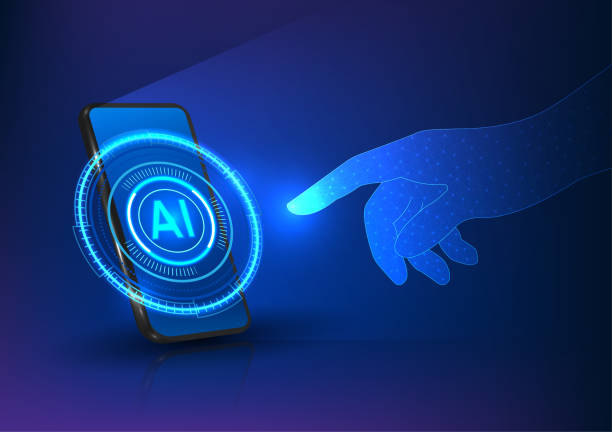
AI assistants have many applications in daily life.
These assistants can help us perform various tasks and make life easier.
Some common applications include:
1.
Task Management and Planning AI assistants can help us manage tasks, set reminders, and schedule events.
For example, we can ask them to record an appointment in our calendar or set a reminder to pay bills.
2.
Information Retrieval AI assistants can quickly and easily search for the information we need.
We can ask them to search the internet for a question or find specific information from a website.
3.
Smart Device Control AI assistants can help us control smart devices in the home.
We can ask them to turn lights on or off, adjust the thermostat temperature, or play music.
4.
Language Translation AI assistants can translate different languages in real-time.
This capability can be very useful when traveling to foreign countries or communicating with non-native speakers.
5.
Customer Service Provision Many companies use AI assistants to provide customer service.
These assistants can answer customer questions, solve their problems, and provide the information they need.
6.
Education and Learning AI assistants can help us learn new topics.
We can ask them to explain a specific topic, answer our questions, or find relevant educational resources.
Given these applications, an AI assistant can become a valuable tool in our daily lives and help us perform various tasks.
Are you tired of your online store having visitors but no sales? Rasaweb solves your core problem with professional online store designs!
✅ Significant sales increase with targeted design
✅ Flawless user experience for your customers
⚡ Get a free consultation!
Challenges and Limitations of AI Assistants
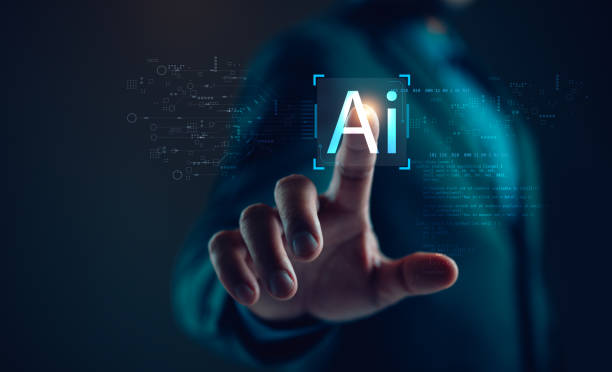
Despite all the progress, AI assistants still face challenges and limitations.
Some of these challenges include:
1.
Limited Language Understanding AI assistants still face difficulties in understanding human language.
They may not correctly understand users’ intentions or may make mistakes in detecting users’ tone and emotions.
2.
Inappropriate Responses AI assistants may provide inappropriate or irrelevant responses to users’ questions.
This problem can be due to a lack of information, flaws in algorithms, or a failure to correctly understand the questions.
3.
Privacy and Security The use of AI assistants can raise concerns about privacy and data security.
These assistants collect a lot of information about users, which may be misused.
4.
Data Dependency The performance of AI assistants is highly dependent on data.
If the training data is incomplete or incorrect, the assistant’s performance will also be affected.
5.
Algorithmic Biases AI algorithms may have biases resulting from training data or algorithm design.
These biases can lead to unfair or discriminatory responses.
6.
Reliability AI assistants may experience errors or perform poorly under certain conditions.
This problem can be due to technical issues, cyber attacks, or sudden changes in the environment.
To overcome these challenges, more research and development are needed in various fields of artificial intelligence.
Also, ethical and legal standards should be developed for the use of AI assistants to prevent misuse of this technology.
What will the future of AI assistants be like?
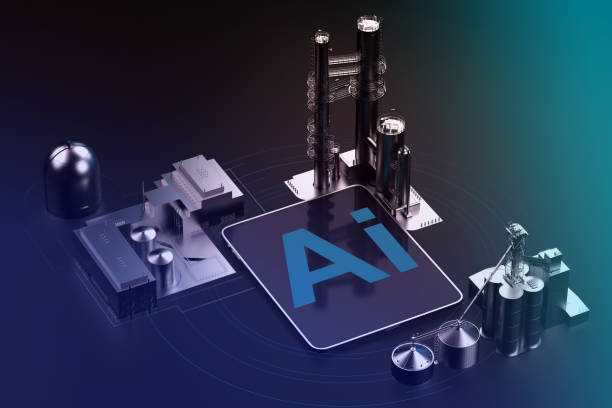
The future of AI assistants looks very bright and exciting.
With advances in technology, these assistants are expected to be able to perform more complex tasks and provide better services.
Some of the key trends in the future of AI assistants include:
1.
Becoming Smarter AI assistants in the future will be able to better understand human language, provide more accurate responses, and perform more complex tasks.
These advances will be driven by the development of new algorithms and the use of more data.
2.
Personalization AI assistants in the future will be able to personalize their services based on the needs and preferences of each user.
This personalization can include specific settings, relevant suggestions, and the provision of information of interest to users.
3.
Multimodal Interaction AI assistants in the future will be able to interact with users through various channels.
These channels can include voice, text, image, and even virtual reality.
4.
Integration AI assistants in the future will be integrated with other systems and devices.
This integration can include connecting to smart devices, information systems, and online services.
5.
Autonomy AI assistants in the future will be able to make more independent decisions and perform tasks automatically.
This autonomy can include planning, problem-solving, and resource management.
Given these trends, AI assistants will play a very important role in our lives in the future and will help us perform various tasks.
AI assistants like ChatGPT, as a prominent example, show how AI can transform our everyday interactions.
The Importance of Privacy and Security in Using AI Assistants
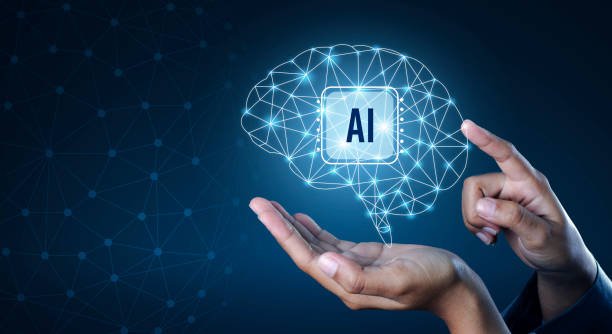
With the increasing use of AI assistants, the importance of privacy and data security is also increasing.
These assistants collect a lot of information about users, which may be misused.
To maintain privacy and security when using AI assistants, the following points should be considered:
1.
Privacy Settings The privacy settings of the AI assistant should be carefully reviewed and its access to your personal information should be limited.
2.
Data Encryption Data encryption should be used to protect your personal information from unauthorized access.
3.
Awareness of Privacy Policies The privacy policies of the company providing the AI assistant should be carefully reviewed to understand how your personal information is collected and used.
4.
Use of Strong Passwords Strong and unique passwords should be used for your user accounts to prevent unauthorized access to your personal information.
5.
Software Updates The AI assistant software should be updated regularly to benefit from the latest security fixes.
6.
Reporting Violations Any violations or suspicious activity should be reported to the company providing the AI assistant.
By following these tips, you can maintain your privacy and security when using AI assistants.
Comparison of AI Assistants Available in the Market

Currently, there are various AI assistants available in the market, each with its own features and capabilities.
Some of the most popular AI assistants include:
1.
Siri is Apple’s AI assistant, available on iOS and macOS devices.
Siri can answer users’ questions, perform tasks, and control smart devices.
2.
Google Assistant is Google’s AI assistant, available on Android devices and Google Home.
Google Assistant can answer users’ questions, perform tasks, control smart devices, and provide personal information.
3.
Alexa is Amazon’s AI assistant, available on Echo and Fire TV devices.
Alexa can answer users’ questions, perform tasks, control smart devices, and order products from Amazon.
4.
Cortana is Microsoft’s AI assistant, available on Windows and Xbox devices.
Cortana can answer users’ questions, perform tasks, and provide personal information.
5.
Bixby is Samsung’s AI assistant, available on Galaxy devices.
Bixby can answer users’ questions, perform tasks, and control smart devices.
| AI Assistant | Manufacturer | Supported Devices | Features |
|---|---|---|---|
| Siri | Apple | iOS, macOS | Answering questions, performing tasks, controlling devices |
| Google Assistant | Android, Google Home | Answering questions, performing tasks, controlling devices, providing personal information | |
| Alexa | Amazon | Echo, Fire TV | Answering questions, performing tasks, controlling devices, ordering products from Amazon |
| Cortana | Microsoft | Windows, Xbox | Answering questions, performing tasks, providing personal information |
| Bixby | Samsung | Galaxy | Answering questions, performing tasks, controlling devices |
Choosing the best AI assistant depends on the needs and preferences of each user.
Before choosing, you should carefully review the features and capabilities of each assistant and make sure that it meets the user’s needs. AI assistants should help people have easier lives.
Do you know that a weak corporate website loses many opportunities daily? Solve this problem forever with professional corporate website design by Rasaweb!
✅ Creating a powerful and reliable image of your brand
✅ Targeted attraction of new customers and increased sales
⚡ [Get a free website design consultation]
Important Considerations in Choosing the Right AI Assistant

Choosing the right AI assistant can have a significant impact on your productivity and efficiency.
To choose the best option, consider the following points:
1.
Device Compatibility Make sure that the AI assistant is compatible with your devices.
Some assistants only work on specific devices, while others can be used on a wider range of devices.
2.
Features and Capabilities Compare the features and capabilities of the AI assistant with your needs.
Some assistants perform better at answering questions, while others are stronger at controlling smart devices.
3.
Privacy and Security Carefully review the privacy and security policies of the AI assistant.
Make sure that the provider respects your privacy and properly protects your personal information.
4.
Price Compare the price of the AI assistant with your budget.
Some assistants are free, while others require payment.
5.
User Reviews Read other users’ reviews of the AI assistant.
These reviews can help you make a decision and be aware of potential problems.
By considering these points, you can choose the right AI assistant that will help you perform various tasks and make life easier. AI assistants help businesses grow.
Social and Economic Impacts of AI Assistants

AI assistants have wide-ranging impacts on society and the economy.
These impacts can include changes in the way things are done, the creation of new opportunities, and changes in social structure.
Some of the important impacts include:
1.
Increased Productivity AI assistants can help increase productivity in many industries.
These assistants can automate repetitive and time-consuming tasks and allow employees to focus on more important tasks.
2.
Creation of New Opportunities AI assistants can create new opportunities in various fields.
These opportunities can include creating new jobs, developing new products and services, and improving business processes.
3.
Change in Social Structure AI assistants can help change social structure.
These changes can include increased access to information and services, reduced inequality, and improved quality of life.
4.
Ethical Challenges The use of AI assistants can create new ethical challenges.
These challenges can include protecting privacy, preventing discrimination, and ensuring accountability.
5.
Need for New Training and Skills The use of AI assistants requires new training and skills.
Employees must be able to work with these assistants, exploit them, and solve potential problems.
To use this technology, the ethical challenges must be carefully examined and the necessary measures taken to prevent negative impacts. AI assistants help solve complex problems by providing creative solutions.
FAQ
| Question | Answer |
|---|---|
| What is an AI assistant? | An AI assistant is a software application that uses artificial intelligence to perform various tasks for users, such as answering questions, setting reminders, playing music, and managing calendars. |
| What are some of the most famous AI assistants? | Some of the most famous AI assistants include Apple’s Siri, Google Assistant, Amazon’s Alexa, and Microsoft’s Cortana. |
| How does an AI assistant work? | These assistants use Natural Language Processing (NLP) to understand user voice or text commands and machine learning to improve performance and personalize responses. |
| What are the main applications of AI assistants? | Main applications include setting alarms and reminders, playing music and podcasts, answering general questions, sending messages, making calls, controlling smart home devices, and providing weather or traffic information. |
| Can AI assistants speak with different accents? | Yes, many modern AI assistants can recognize and produce speech in different accents and languages. |
| What are the differences between an AI assistant and a chatbot? | AI assistants are generally more comprehensive and can perform various tasks beyond answering text questions (such as controlling devices). Chatbots are mainly designed for text conversations on websites or messaging apps. |
| Is using an AI assistant safe? | Companies are trying to ensure data security, but there are concerns about privacy and the storage of voice data. Users should review their privacy settings. |
| What will the future of AI assistants be like? | In the future, AI assistants are expected to be smarter, more predictive, and more integrated into daily life and other devices, and be able to perform more complex tasks. |
| How can I activate an AI assistant? | They are usually pre-installed on smartphones and smart home devices. You can activate them by saying “Hey Siri”, “Ok Google” or “Alexa” and then giving your command. |
| Can an AI assistant help me with learning? | Yes, it can help in learning by providing information, defining words, translating texts and even solving math problems. It can also play educational podcasts for you. |
And other services of Rasa Web Advertising Agency in the field of advertising
Smart Data Analysis: A dedicated service for increasing click-through rates based on marketing automation.
Smart Content Strategy: An innovative service for increasing user engagement through the use of real data.
Smart Reportage: Professional optimization to increase click-through rates using real data.
Smart SEO: A fast and efficient solution for managing campaigns with a focus on precise audience targeting.
Smart UI/UX: A creative platform to improve customer behavior analysis with an attractive user interface design.
And over a hundred other services in the field of internet advertising, advertising consulting, and organizational solutions
Internet Advertising | Advertising Strategy | Reportage Ad
Resources
Applications of Artificial Intelligence in Everyday Life
,Is Artificial Intelligence an Ambassador of Congeniality?
,What is Google Bard AI Assistant and how does it work?
,What can you do with Artificial Intelligence?
? To reach the peak of success in the digital world, Rasaweb Afarin Digital Marketing Agency, by offering innovative solutions in multilingual website design and SEO optimization, introduces your business to a wider range of audiences. Shine professionally with us!
📍 Tehran, Mirdamad Street, next to the Central Bank, Kazerun South Alley, Ramin Alley No. 6
“`



